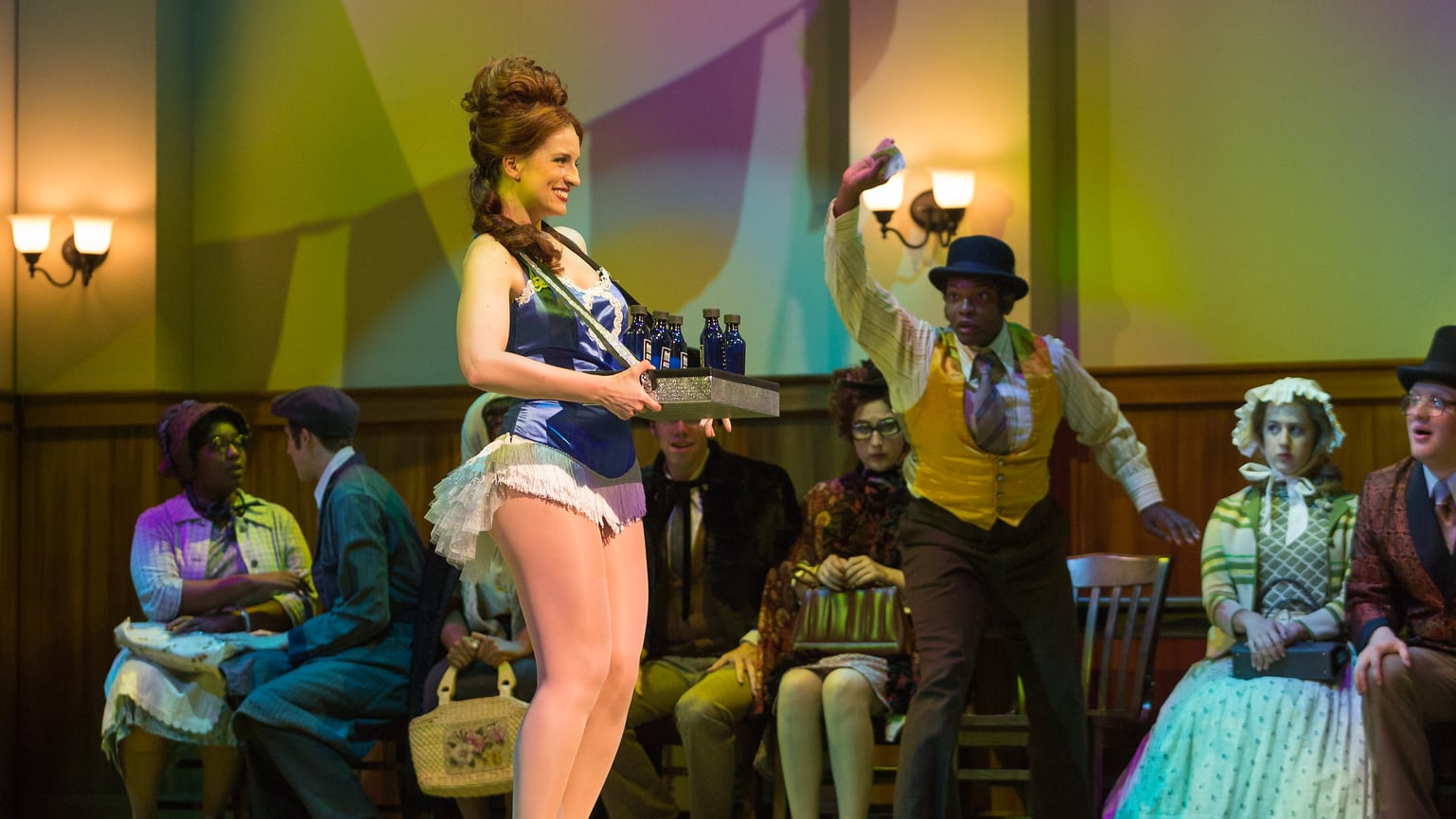Three and a half hours north of New York City sits the village of Cooperstown. It is most famous for being the home of the Baseball Hall of Fame and childhood home of James Fenimore Cooper whose father, William, founded the village in 1786.
Cooper based his famous novel, The Last of the Mohicans, on historical events that occurred in the greater surrounding area during the French and Indian War. Much of the Village of Cooperstown is on the National Register of Historic Places, and the New York State Historical Association is based there.
One cannot get much more Americana than Cooperstown. But just 8 miles north of Cooperstown on Otswego Lake lies the Glimmerglass Festival, known up until 2011 as Glimmerglass Opera. Run since 2011 by Francesca Zambello, who is also the artistic director of the Washington National Opera in D.C., Glimmerglass runs from early July to late August every summer and is the second-largest summer opera festival in the U.S.
ADVERTISEMENT
Glimmerglass celebrated its 40th anniversary last year and sells close to 35,000 tickets every summer. These numbers include a surprisingly large number of locals.
“50 percent of our audience comes from a two-hour radius. 15 percent comes from New York City. The rest come from Canada and the 50 states and international,” Francesca Zambello tells The Daily Beast.

The first season of Glimmerglass was performed in the Cooperstown High School auditorium in 1975, though it grew quickly and really came to life in 1987 with the opening of the 914-seat Alice Bush Opera theater, which was the first American opera house to be built since 1966.
The Bush theater was designed to resemble the many farming structures in the area and therefore allow it to blend more seamlessly into the pastoral landscape and its outer walls slide open to allow for an open-air experience in the theater and during intermissions.
The large grounds of Glimmerglass have picnicking and hiking trails, and they present four main stage shows at the Bush every summer including three operas and one American musical.
In addition to the main stage performances there are many smaller concerts, master classes, community engagements initiatives, and presentations by contemporary figures of note, which helps create the combination of old and new perspectives that draws much of the audience to Glimmerglass.
“When I started, I was interested in broadening our horizons and making it much more of a destination, which first was taking the title ‘opera’ out of our name and calling us the Glimmerglass Festival to really reflect the breadth of our programming,” Zambello explained.
For the past several years Ruth Bader Ginsburg, herself a huge opera fan, has done a presentation on Law in Opera at Glimmerglass.
Members of the Glimmerglass Young Artists Program perform excerpts and scenes from operas involving law and justice followed by Justice Ginsburg discussing the legal issues at play in the scenes and law in the arts general. Her appearances sell out quickly.

One of the most interesting and innovative Glimmerglass initiatives is bringing opera to Attica prison 3½ hours west of Cooperstown, which they did for the first time last summer.
The idea had germinated during a panel discussion at the 2014 festival, where University of Buffalo, SUNY law professor Teresa A. Miller presented a documentary she had made about inmates doing life in Attica Prison.
Zambello explains to The Daily Beast, “I said to her maybe we should try to bring an opera there. I went to Attica. I met with them a couple of times and then it culminated in the performance last year. They even asked us back and asked us if we could bring costumes.”
It took a huge amount of paperwork and lengthy security checks, but Zambello and her team performed in Attica for 160 chosen inmates who has earned the right to participate through good behavior.
For their first visit, Zambello chose excerpts from Giuseppe Verdi’s opera version of Macbeth. Glimmerglass provided study packets to the inmates in advance of their visit to give some background into Macbeth and opera generally. She also gave a short introductory speech to the inmates before introducing the singers and starting the show.
Zambello explains, “For Macbeth, I said this is the story of a couple who commit one murder, and then another. It’s a story of how one bad deed takes them down a path they can’t turn back from. Which is dark, but a lot of them laughed when I said it.”
She brought three singers, world renowned bass baritone Eric Owens, bass Soloman Howard, both African American, and soprano Melody Moore.
It was particularly powerful to experience Owens and Howard, two men of color, singing in that environment and for that population.
“That was incredibly profound to see Eric Owens and Soloman Howard. These men just looked at them with shock and amazement and wonder. In the Q&A afterwards, when Soloman Howard, who came from the ghetto in Washington, said, ‘I started out in the hood in D.C.,’ they started cheering him…What both of them spoke about really was how music was their salvation,” Zambello said.
Each season at Glimmerglass is built around a theme. This year’s theme is “Unjust Accusations,” which seems prescient given today’s political climate where entire nationalities can be accused of being rapists and there are calls for a total ban of Muslims entering the U.S.
Zambello’s new production of the opera version of Arthur Miller’s The Crucible— Robert Ward’s 1961 operatic adaptation of the 1953 play—speaks directly to this theme.
The Crucible, which used the Salem Witch Trials as a critique of McCarthyism, seems especially apt in the political and social climate of this moment.
“Cooperstown is like Main Street America, USA, but a work like this really challenges a lot of those values and ideas,” says Zambello.
The Crucible opens on July 23 at the Glimmerglass Festival. For more information on the Glimmerglass Festival and their production of The Crucible please visit here.





